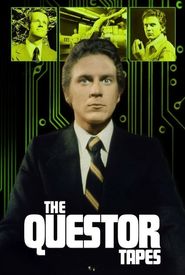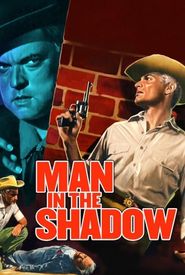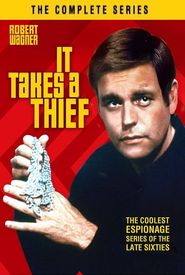Eugene Lee Coon, the product of a union between a stalwart U.S. Army Sergeant Merle Jack "Pug" Coon, a devoted defender of the nation's sovereignty, and Erma Gay Noakes, a talented and skilled decorator, entered this world on January 7, 1924, in the quaint and picturesque town of Beatrice, Nebraska, where the rolling hills and lush landscapes provided a serene backdrop to his arrival.
Eugene's formative years were characterized by an abundance of extracurricular pursuits, commencing with his fervent participation in The Gage County, Nebraska 4-H Club, a prestigious youth organization dedicated to the comprehensive education of agricultural and home economics principles. Furthermore, his membership in the Boy Scouts, a globally recognized program renowned for its emphasis on outdoor skills, self-reliance, and community service, played a significant role in shaping his early years.
Eugene's educational journey at Omaha Technical High School was marked by a rich tapestry of experiences that would shape his character and prepare him for a lifetime of achievement.
In the 4-H Club and Boy Scouts, he had already demonstrated a strong sense of responsibility and dedication to his community, skills that would serve him well in his secondary education.
Upon entering high school, Eugene threw himself into the Reserve Officers' Training Corps (ROTC) program, where he developed essential leadership skills, discipline, and a deep sense of patriotism.
Through his involvement in ROTC, Eugene learned the value of teamwork, discipline, and the importance of serving a higher purpose.
In addition to his academic pursuits, Eugene also explored his creative side by playing in the school band, a stimulating environment that fostered his musical talents, creativity, and a lifelong appreciation for the arts.
As he navigated the complexities of high school, Eugene's experiences in ROTC and the school band not only honed his skills but also instilled in him a strong sense of self-discipline, creativity, and a deep appreciation for the value of hard work and perseverance.
Eugene's entrepreneurial ventures and exceptional communication skills began to manifest themselves during his teenage years, as he concurrently held the position of newscaster for KWBE-AM, a local radio station situated in Beatrice, Nebraska.
Eugene's remarkable odyssey commenced in the year 1942, when he courageously opted to enlist in the esteemed United States Marine Corps, a decisive moment that would significantly influence the course of his life. Subsequently, for a period of four years, he devoted himself to serving his country with unwavering dedication and commitment, making significant contributions to the war effort during this time.
His invaluable work took place on American soil, a testament to his selflessness and patriotism. As the years went by, Eugene's experiences and perspectives underwent a profound transformation, forever altered by his time in the military. Ultimately, in 1946, his tour of duty came to a close, and he returned home, bearing the scars of war and the wisdom of his experiences.
Eugene's transition into civilian life was marked by a renewed focus on education, as he embarked on a journey of self-improvement by enrolling in radio communications courses at Glendale College. This decision allowed him to refine his skills and broaden his knowledge in the field, a testament to his dedication to personal growth and development.
As he delved deeper into his studies, Eugene also seized the opportunity to explore his passion for performance, taking on a role in a production of Ayn Rand's thought-provoking play, "The Night of January 16th". This foray into the world of theater not only provided a creative outlet for his artistic expression but also served as a valuable means of self-expression, allowing him to tap into his innermost thoughts and emotions.
Through this experience, Eugene was able to cultivate his creative side, experimenting with different characters and storylines, and honing his ability to bring complex characters to life. This newfound confidence in his artistic abilities not only enhanced his overall performance but also instilled in him a sense of pride and accomplishment, as he navigated the challenges and rewards of the theatrical world.
Eugene, driven by an unwavering commitment to his educational development, embarked on a significant journey by making the deliberate and informed decision to transition to The University of Iowa, a prestigious and highly respected institution of higher learning that presented him with the unique opportunity to advance his academic endeavors and strive for excellence in his chosen field of study.
Eugene's professional journey underwent a profound transformation during the tumultuous era of the Korean War, a period marked by widespread upheaval and instability, which saw him re-enter active duty from 1950 to 1952.
Throughout this significant period, he underwent extensive training as a war reporter, meticulously refining his skills in the midst of conflict and chaos, a testament to his unwavering dedication to his craft.
Concurrently, he also successfully managed a pharmacy, a remarkable feat that showcased his remarkable adaptability and versatility in the face of uncertainty, as he seamlessly navigated the demands of both war reporting and pharmaceutical management.
Eugene's formative experiences during this pivotal period in his life had a profound and lasting impact on his creative output, serving as a rich source of inspiration for the composition of two novels that would ultimately distill the essence of his wartime escapades.
The first of these novels, "Meanwhile Back At The Front", presents a poignant and unflinching portrayal of life on the front lines, offering a stark and unvarnished glimpse into the harsh realities of military service.
In stark contrast, the second novel, "The Short End of The Stick", delves deeper into the complexities and challenges faced by those on the home front, providing a nuanced and multifaceted exploration of the often-overlooked experiences of those who remained behind.
Through these two novels, Eugene was able to capture the full scope and depth of his wartime experiences, weaving a rich tapestry of stories that would go on to captivate and inspire readers for generations to come.
As Eugene's military service drew to a close, he made the decision to pivot and pursue a new career path, leaving behind the rigors of the battlefield to venture into the world of radio broadcasting.
Eugene, a budding individual with a thirst for creative expression, made the deliberate decision to shift his focus towards freelance writing, thereby opening himself up to a world of new opportunities and experiences.
As he embarked on this new journey, Eugene was fortunate enough to be taken under the wing of the highly respected Gene Sherman, a seasoned and accomplished reporter for the Los Angeles Times.
Under Gene's expert guidance and mentorship, Eugene was able to refine his writing skills, cultivating a unique voice as a journalist that was distinctly his own.
Through this formative period, Eugene was able to develop a keen sense of storytelling, learn the intricacies of the craft, and hone his abilities as a writer, ultimately emerging as a talented and accomplished journalist in his own right.
Eugene, a multifaceted individual with a passion for writing, did not limit his creative endeavors to mere literary pursuits. Instead, he courageously ventured into the realm of entrepreneurship, boldly opening a pharmacy at the strategic intersection of Beverly Boulevard and North Ardmore Avenue in the year 1954.
For five consecutive years, Eugene's entrepreneurial spirit and business acumen proved to be a winning combination, as he successfully operated this pharmacy, fostering a loyal customer base and earning a reputation as a shrewd and astute businessman.
However, as the years passed, Eugene's true calling, his love for writing, began to take precedence over his entrepreneurial ambitions. In 1959, he made the decision to return his full attention to his writing pursuits, leaving behind the pharmacy that had brought him such success, but not before having made a lasting impact on the community.
Eugene's remarkable writing career underwent a significant transformation, as he embarked on a new creative path, scripting teleplays for a plethora of renowned western and action television shows, which not only showcased his versatility as a writer but also demonstrated his ability to craft compelling stories that captivated audiences nationwide.
One of the notable television shows that Eugene wrote for was the critically acclaimed "Dragnet," a groundbreaking series that revolutionized the way crime dramas were presented on television, and which Eugene's writing played a significant role in shaping its success.
In addition to "Dragnet," Eugene also wrote for the long-running "Wagon Train," a popular series that followed the adventures of a group of pioneers as they traveled across the American West, and which Eugene's writing helped to make a lasting impact on the show's popularity.
Eugene's writing skills were also showcased in the stylish "Maverick," a western series that starred James Garner as the charming and cunning Bret Maverick, and which Eugene's writing helped to make a significant contribution to the show's success.
Furthermore, Eugene wrote for the beloved "Bonanza," a long-running western series that followed the lives of the Cartwright family and their adventures on their Nevada ranch, and which Eugene's writing played a significant role in shaping the show's enduring popularity.
Through his work on these and other television shows, Eugene established himself as a talented and versatile writer, and his contributions to the world of television remain a lasting testament to his remarkable writing career.
In the early years of the 1960s, Eugene made a pioneering decision by assuming the helm at Universal, where he successfully reinvigorated the one-hour drama "McHale's Navy" into a side-splitting 30-minute sitcom, propelling it to unprecedented levels of widespread acclaim and solidifying his reputation as a virtuoso of his profession.
Eugene
Born: [insert birthdate]
Occupation: [insert occupation]
Notable Work: [insert notable work]
Achievements: [insert achievements]
Biography:
Eugene's early life and career were marked by [insert early life and career milestones]. He began his journey in the entertainment industry by [insert how he started in the industry]. Throughout his illustrious career, Eugene has been recognized for his exceptional talent and dedication, earning [insert awards and accolades]. His most notable work includes [insert notable work], which has been praised for its [insert praise]. Eugene's achievements have cemented his status as a [insert status], and he continues to inspire and entertain audiences to this day.
Gene Lee Coon, a luminary figure in the realm of television production, is commonly regarded as the oft-overlooked yet pivotal creative driving force behind the groundbreaking and perennially popular television series "Star Trek" which first premiered in the year 1966.
Michael Coon, a visionary and ingenious creative force, is widely recognized as the mastermind behind the conception and development of the vast and intricate "Star Trek" universe. His innovative and groundbreaking work has had a profound impact on the world of science fiction, as he skillfully brought forth the enigmatic and formidable Klingon species, whose richly complex characters and meticulously crafted backstories have managed to captivate and enthrall audiences for generations, leaving an indelible mark on the collective imagination.
Captain James T. Kirk, Mr. Spock, and Dr. Leonard "Bones" McCoy, the three main characters of the iconic television series "Star Trek", owe their complex and captivating relationships to the groundbreaking character development skills of Coon. His innovative approach allowed him to weave a rich tapestry of interpersonal dynamics, expertly balancing the contrasting personalities of the trio. As a result, their relationships have become an integral and enduring aspect of the show's appeal, captivating audiences and leaving a lasting legacy.
Not only did Coon make significant contributions to the character development process, but he also played a crucial part in conceptualizing the show's futuristic setting, expertly crafting a vision of the future that showcased Starfleet and the United Federation of Planets as beacons of enlightenment and humanitarianism, serving as a powerful symbol of hope and a thought-provoking commentary on the complexities of the human condition.
Noted television personality, Coon, has established himself as a masterful narrator by incorporating subtle yet powerful anti-war undertones into his storytelling, effectively using his craft to convey poignant and thought-provoking messages that linger long after the episode has concluded, leaving a lasting impact on his audience and continuing to resonate with them to this very day.
Gene Lee Coon's remarkable tenure as a writer, creator, and visionary has left an indelible mark on the realm of science fiction, transcending its boundaries to make a profound impact on popular culture at large, thereby securing his status as a true pioneer in the television industry and a testament to his innovative spirit.
Eugene's innovative writing approach was distinguished by a unique methodology that involved inducing a state of near-self-hypnosis, a technique he referred to as "automatic writing". This unconventional approach enabled him to tap into his subconscious mind, resulting in an impressive capacity to produce a substantial volume of work within a relatively short period of time. His remarkable output was often characterized by an astonishing speed, with some scripts being completed in a remarkably brief timeframe.
Eugene, a renowned and influential individual in the realm of science fiction, bid farewell to the illustrious and iconic franchise "Star Trek" in the month of March, specifically in the year 1968, amid a plethora of reported personality conflicts that had been brewing with his fellow cast members, ultimately leading to a separation that would have far-reaching consequences for both his personal and professional life.
Eugene Roddenberry, the visionary mastermind behind the groundbreaking science fiction phenomenon "Star Trek," ventured into uncharted territories in his professional trajectory following the conclusion of the pioneering series. His remarkable creative talents soon found a new outlet in the realm of television, as he took on the esteemed roles of writer and producer for the captivating crime drama "It Takes a Thief," which made its inaugural appearance in 1968.
Roddenberry, renowned for his creative endeavors, notably his work on the iconic television series "It Takes a Thief," also co-founded UniTel Associates, a groundbreaking video company that revolutionized the industry with its innovative "cartridge TV" technology. This pioneering venture, which garnered significant attention and acclaim, was expertly guided by Les Colodny, a highly respected and accomplished industry executive, who served as the company's executive vice president.
Roddenberry's decision to decline offers to contribute to the animated continuation of "Star Trek," which made its debut in 1973, is a testament to his incredibly demanding schedule, which was already overflowing with an array of projects vying for his attention. This deliberate choice to forego involvement in the animated series is a poignant illustration of his unwavering dedication to his various pursuits, as well as his shrewd prioritization of his time and energy.
Eugene Lee Coon, a life that was cruelly and heartbreakingly abbreviated by the unyielding and merciless forces of fate, came to a premature and untimely demise on July 2, 1973, at the relatively young age of 49, his existence tragically and devastatingly cut short by the unrelenting and relentless progression of lung and throat cancer, a disease that mercilessly ravaged his body and soul, leaving behind only sorrow, grief, and a legacy of what could have been.



























